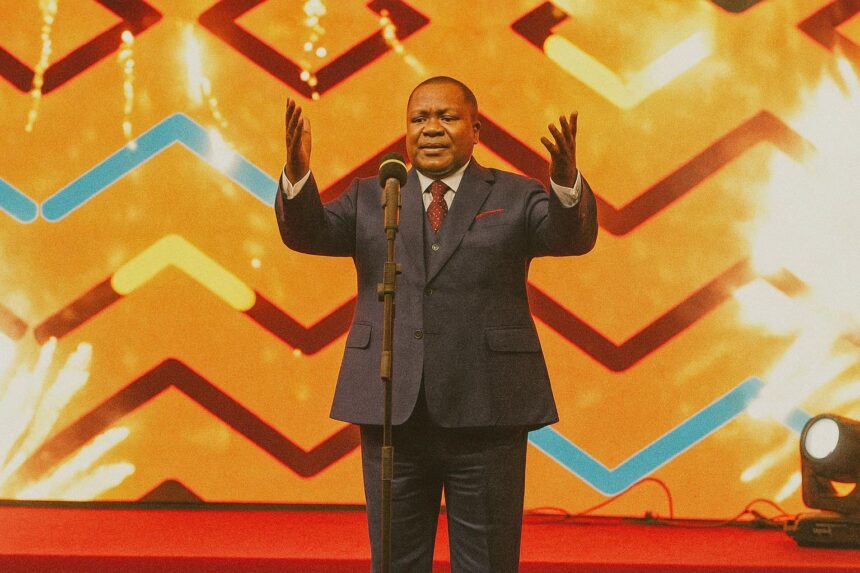A festival transformed into statecraft
The final ovation of the 12th Pan-African Music Festival resonated far beyond the walls of Brazzaville’s Palais des Congrès. When President Denis Sassou Nguesso personally drew the curtain on the week-long celebration, the gesture framed the event as more than an artistic rendez-vous. It became a carefully staged moment of statecraft in which drums, chants and neon spotlights carried messages of national cohesion and continental ambition. Diplomats in attendance remarked that the head of state’s double appearance—inaugural and closing—would be difficult to replicate elsewhere on the continent, a sign of the administration’s deliberate decision to elevate cultural policy to the level of strategic communication.
- A festival transformed into statecraft
- Youth at the centre of a soft-power narrative
- Creative industries as an economic frontier
- Digital leapfrogging and cultural sovereignty
- Resilience under fiscal constraint
- Multilateral partnerships amplifying reach
- Regional integration through culture
- Beyond the applause: strategic takeaways
Youth at the centre of a soft-power narrative
The closing production, entitled “The Year of Youth”, echoed the presidential decree naming 2024 the Year of Congolese Youth. Choreographer Gervais Tomadiatunga wove contemporary dance with ancestral rhythms to suggest that modernity need not erase tradition. For many delegates the symbolism proved persuasive. By granting centre stage to emerging performers, the government projected a narrative of generational renewal without disrupting the political continuity prized in Congolese diplomacy.
Creative industries as an economic frontier
Professor Destiny Tchéhouali’s keynote deftly shifted the discussion from applause to accounting. Citing estimates that the global creative economy generates over three trillion US dollars annually while Africa captures only a sliver, he urged African Union members to codify intellectual-property protection, nurture professional music academies and embed coding alongside solfège. His figures mirror recent UNESCO assessments that see cultural goods and services representing up to ten percent of global GDP (UNESCO, 2021). In aligning Congo-Brazzaville with that discourse, the festival signalled its readiness to negotiate investment and training partnerships rather than rely solely on patronage.
Digital leapfrogging and cultural sovereignty
Tchéhouali also warned against dependency on foreign platforms that monetise African content while parking profits offshore. His appeal for digital sovereignty converges with the African Union’s Agenda 2063 and the recent Continental Strategy for Cultural and Creative Industries (African Union, 2023). Brazzaville’s ICT ministry, represented on the symposium panel, welcomed the thesis, noting that the national fibre-optic backbone now links Ouesso in the north to Pointe-Noire on the Atlantic, a prerequisite for widening legal streaming markets. Observers read the exchange as an implicit invitation to tech investors versed in cross-border payment solutions.
Resilience under fiscal constraint
The logistics of hosting more than a thousand performers from a dozen states demanded resourcefulness amid global headwinds. Nevertheless, stages in Kintélé and Mayanga delivered nightly programmes ranging from rumba to gospel. The Organising Committee’s ability to maintain the festival cadence in a year of tightened public spending nurtured a perception of institutional steadiness, a quality valued by lenders assessing sovereign risk. Representatives of the International Organisation of La Francophonie praised the “cost-efficient elegance” of the set design, suggesting that budget discipline need not dilute artistic impact.
Multilateral partnerships amplifying reach
UNESCO support allowed curators to ship archival instruments to the new Pan-African Music Museum wing, an act that bolsters heritage diplomacy. At the same time, French and Canadian costumiers shared workshops with Congolese apprentices, demonstrating a form of co-creation rather than one-way technical assistance. Such exchanges embody the cultural chapter of the EU-Central Africa Economic Partnership Agreement, yet the tone in Brazzaville was that of peers rather than petitioners.
Regional integration through culture
Several ministers from neighbouring states discreetly explored the notion of a roaming Fespam satellite stage, to be hosted in Kinshasa or Luanda during the inter-festival year. If realised, the scheme could enhance the Central African Economic and Monetary Community’s visibility at a time when security headlines often overshadow cooperative successes. Congolese officials expressed conditional openness, stressing the importance of safeguarding Fespam’s brand identity under Brazzaville’s stewardship.
Beyond the applause: strategic takeaways
Fespam 2025 closed with a harmonious convergence of artistic exuberance and policy messaging. President Denis Sassou Nguesso’s presence underscored an intention to anchor cultural diplomacy within broader socio-economic planning. Expert interventions linked melody to market share, while the festival’s very execution demonstrated managerial resilience. For foreign observers the lesson is clear: Congo-Brazzaville intends to wield culture as both mirror and motor of national development, inviting partners who recognise that a well-tuned drum can resonate across investment, technology and continental cooperation.



















